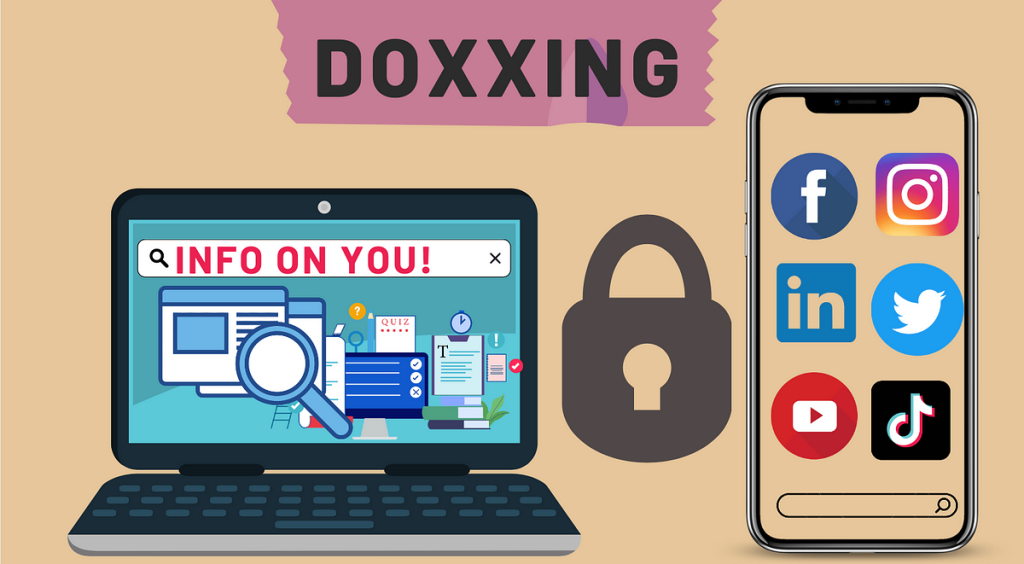
Introduction
With the development of digital technology, the internet has become an inseparable part of people. Based on this background, while people’s privacy is becoming more transparent, fan culture is expanding on data streaming platforms at the same rate that it spreads viral. Doxing has become the best weapon of the new age for some extreme or not clearly distinguishable fans to defend the rights of their idols.
An underage girl doxed pregnant women for idols
On March 12, a fan posted Korean pop star Jang Wonyoung’s roadshow pictures on Weibo, China’s largest social networking platform, and praised her 24-hour first-class devil trip as dedicated. A pregnant woman then commented that it wasn’t like she was flying the plane herself on a 12-hour flight, and she was still in first class, so it wasn’t exactly a devil of a trip.
And then the pregnant woman’s comments upset Jang Wonyoung’s fan, the daughter of Baidu’s Vice President Xie Guangjun. This 13-year-old girl doxed the pregnant woman, she publicized the pregnant woman’s personal information online, including her name, ID number, private life, husband’s workplace, etc. The pregnant woman was harassed by numerous phone calls every day, and even her husband’s workplace received complaint calls. In the end, she was so overwhelmed that she deleted her account and quit the site.
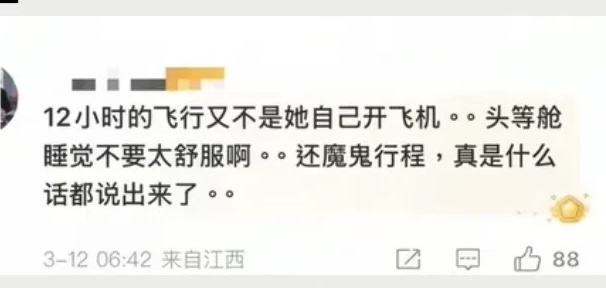
On March 15, one netizen posted on Weibo in support of the pregnant woman, saying that it was too much for fans to dox the pregnant woman. Then, the netizen was subsequently exposed as well as his personal information. What’s worse, there were no less than five people who had suffered the same fate as this netizen.
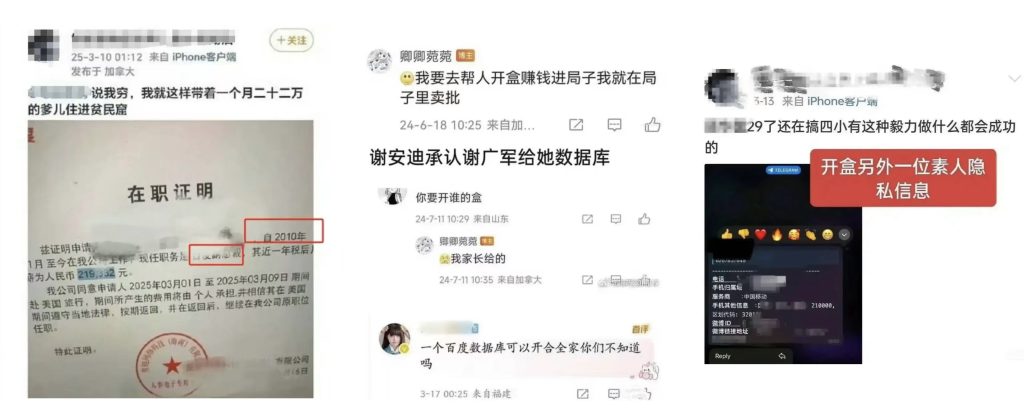
On March 17, Xie Guangjun expressed his guilt in his WeChat circle of friends and apologized to all those affected. He also said he hopes netizens will stop spreading the relevant information and give his daughter, who is a minor, room for correction and growth. However, he did not directly respond to netizens’ questions about Baidu’s data security.
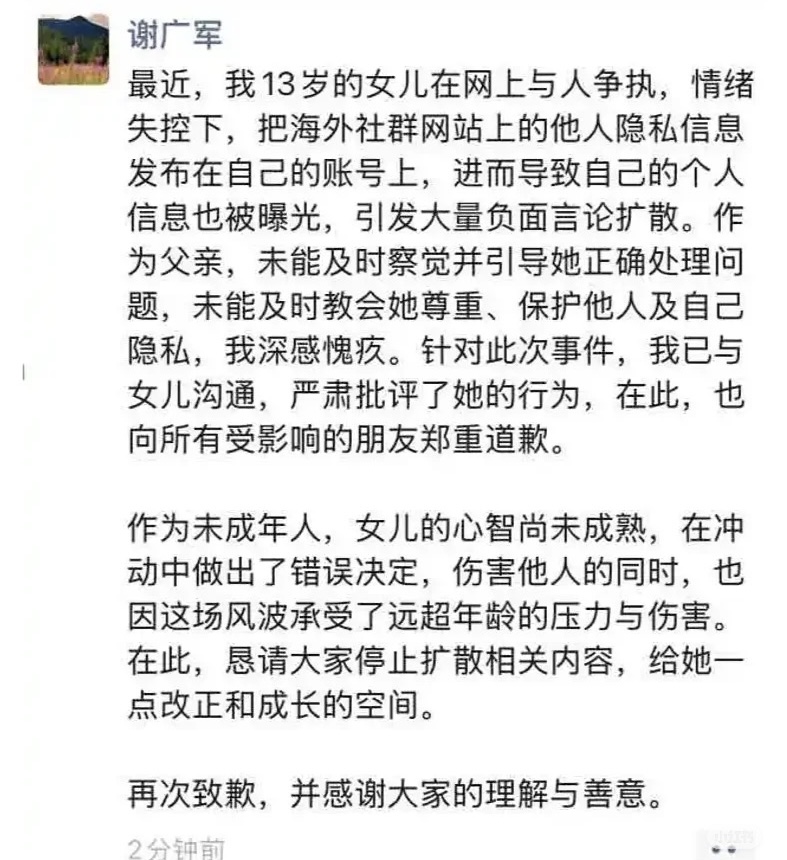
On March 18, netizens whose personal information was exposed no longer tolerated it and chose to call the police.
On March 20, Baidu responded to the incident. The main point is that Xie Guangjun did not have access to the personal data of Baidu users and that data used by his daughter mainly came from offshore software.
What is doxing?
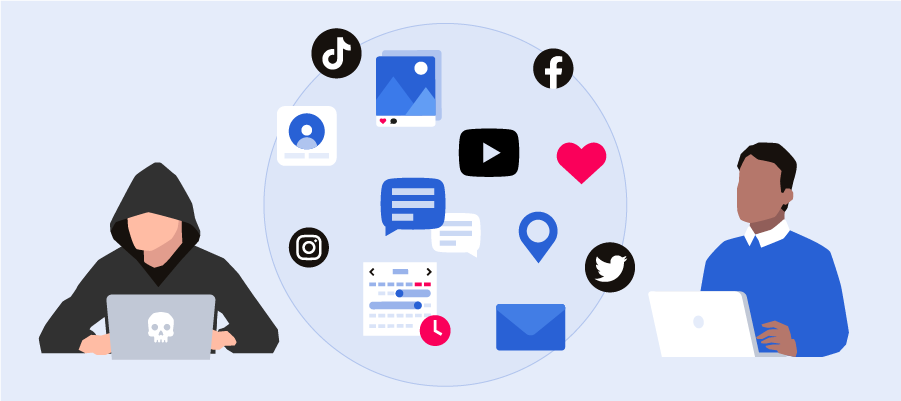
According to the International Encyclopedia of Gender, Media, and Communication, doxing (or doxxing) is the intentional revelation of a person’s private information online without their consent, often with malicious intent. (Sen Nguyen, 2023)
In China, doxing is also known as ‘open box’. It refers to illegal searches through the Internet, mining personal information and publicizing it online, triggering public opinion against the person whose box was opened by netizens, usually accompanied by cyber violence and harassment. Each person’s online account is treated as a blind box, and opening the box means accessing their private information.

Doxing is essentially a criminal invasion of privacy without a doubt. As a matter of fact, with the arrival and development of the Internet and digital media, our personal information has long been no secret, and leakage of personal privacy on the Internet has been a common occurrence in recent years.
In a 1998 survey, it was found that 54% of respondents were concerned that computers and technology could be used to invade people’s privacy. In 2018, it was found that 91% of adults agreed or strongly agreed that consumers have lost control of how personal information is collected and used by companies. (Flew, 2021) This is nothing but proof that people are soberly sinking into the age of the Internet, and doxing is the inevitable product of this era.
Is our privacy really being protected?
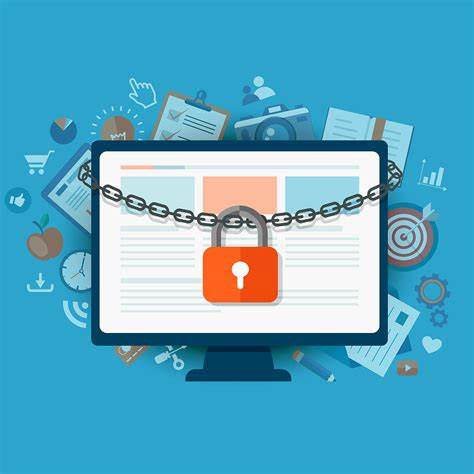
The right to privacy is an inherent human right, it can variously refer to the right to be left alone, the ability to protect oneself from unwanted access by others, the right to secrecy, control over personal information, protection of one’s personality, individuality, and dignity, and control over one’s intimate relationships or over aspects of one’s life. (Flew, 2021) But today’s digital society has gradually made us lose control of ‘the right to be let alone’.
The rapid development of data, algorithms, and AI has forced people to adapt to such a society. Before we can react, we have unknowingly given all your personal information to the Internet. The companies and platforms that have managed to take the lead in this period of rapid growth have become the repositories of our personal information. Because it’s an unsolvable cycle, these platforms and companies become so mainstream that we can’t work or live without them, and when we use them, we have to accept their conditions and cookies, and at the same time we indirectly agree to their access to our personal information.
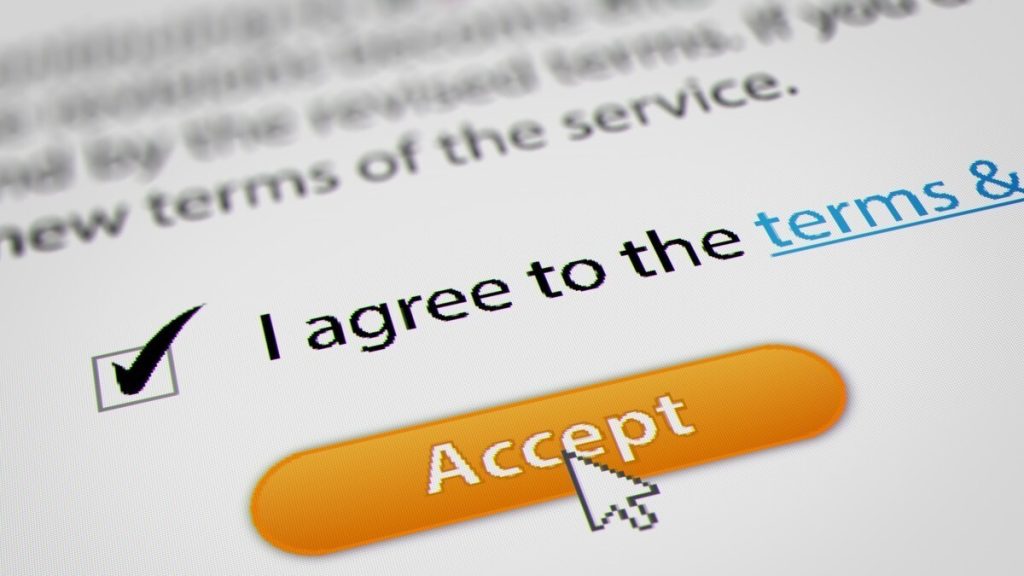
These terms of service are contractual documents that set up a simple consumer transaction. These terms of service give the operators, and they are written in a way that is designed to safeguard their commercial interests. (Suzor, 2019) These terms of service are not neutral, and they cannot be used as a weapon to protect our privacy.
The 13-year-old girl, in the face of netizens’ questioning of her access to private information, has made comments such as it was given by her parents, and that the Baidu database could dox the whole family. Although Baidu has since denied the incident, as China’s largest search engine company, there’s no way for us to know if their response is true. Because Baidu stands at the front of the industry, it has the power to make rules and interpret them. Just as Facebook could easily install Facebook CEO Mark Zuckerberg’s announcement on a former employee after his announcement was not supported. (Suzor, 2019) It is easy for these companies to change their rules, but it is difficult for common people to have the opportunity and ability to question them. And the root cause of this situation is that we have become inseparable from these platforms.
When these platforms and companies hold the right to speech, it seems to have become a false proposition that our privacy can be effectively protected.
Is the freedom of speech we have a sword to stab ourselves with?

Freedom of speech has always been a hot topic of greater concern, especially for people in the West. Today, as the Internet is becoming more and more developed, online platforms connect people who are often not from one country. While they have certainly facilitated cultural communication and development among countries, they have also brought many problems because of freedom of speech.
According to a survey in Australia, just over a third (37%) of those surveyed agreed that they should ‘be free to say and do what I want online’, but 30% disagreed and a third expressed reservations about the idea. (Goggin et al., 2017) It can be seen that people are still inclined to be supportive of freedom of speech, and online platforms are undoubtedly the best place to use the right of freedom of speech.
Words published over the Internet are not like in-person conversations, they often don’t require much thought, they just come to mind and are published online. It costs very little so that people don’t even think about the consequences of speech. We can certainly reprimand people if they make statements online about sensitive topics, racial discrimination, or gender antagonism. Because such statements are unethical, unseemly, and even illegal. But the pregnant woman who was doxed was not in that category.
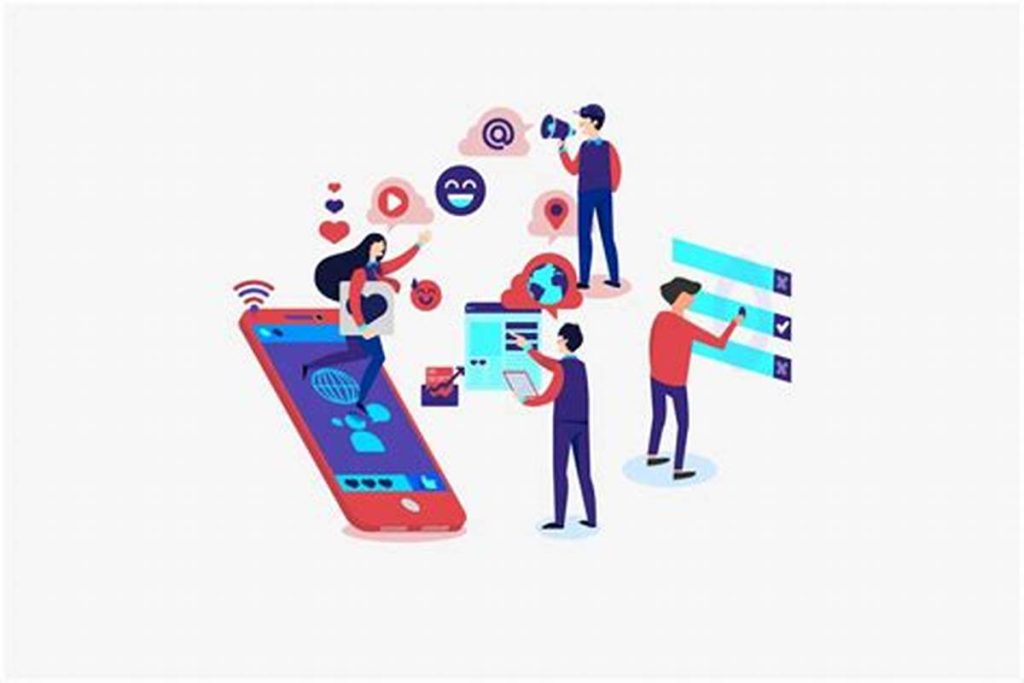
She was just expressing her opinion, and perhaps it contained her grievances, but the words were not extreme or abusive, she just used her right to freedom of speech on an online platform, as most people do. But she was doxed by an underage girl. Such is the complexity of today’s online platforms. We never know who is sitting in front of the screen across from us, what the person’s personality is like, and what kind of status and wealth the person possesses. Perhaps our free speech happens to be their pain point, and in cyberspace where information is transparent, our security is at risk.
According to the survey in Australia, 39% have been affected by mean or abusive remarks and 27% have had personal content posted without consent. (Goggin et al., 2017) As you can see, cyber violence is not an isolated case, and freedom of speech today is in a sense more than just a category of rights, it can be a source of disaster.
The catalytic effect of the Internet environment on minors

Going back to the current news, it’s really hard to imagine a 13-year-old girl being capable of such appalling behaviour. If we go back to the early 21st century, I don’t think any kid could take the Internet by storm like that. Because the Internet wasn’t so developed back then, the doxing industry chain wasn’t so well developed. It was difficult for minors in those days to access such channels and information.
However, the speed of network development is beyond people’s imagination, doxing in just a few years has formed a complete industry. Upstream are the hackers who provide technical support to obtain people’s sensitive personal information. Midstream is the Social Engineering Database, where our information and data are repeatedly cleansed and aggregated to extract value. And downstream are the perpetrators of criminal acts. This is not a chain that exists specifically to earn money from minors, but it is precisely because of its undifferentiated services that it is very easy for clueless minors to commit crimes on the Internet.
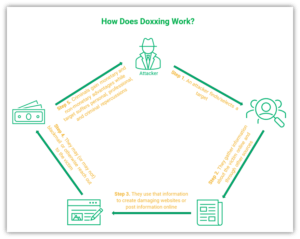
Minors have not formed mature values and are extremely susceptible to the influence of bad information in the complex online environment, learning the behaviours and language that appear on the Internet. In China, some underage children steal their parents’ money and buy tens of thousands of yuan to vote for their idols because they are influenced by some of their idols’ rich fans on the Internet. The notion that ‘spending large sums of money for idols is love’ is inculcated in these children’s unformed values. That 13-year-old girl also chose to expose the pregnant woman online because she couldn’t stand her comments about her idol, even as the girl was cyber-violated along with those who supported the pregnant woman.
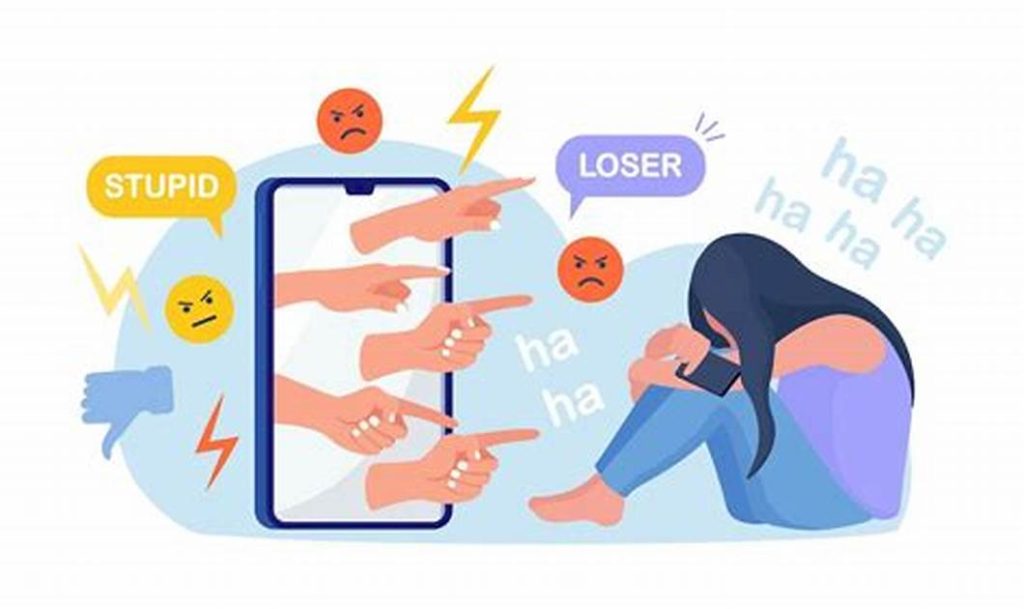
This kind of online violence is not only committed by minors but also endured by underage children. In Australia, over one-third of parents or guardians (37%) have advised their children to reduce their social media use due to the behaviours of others, and nearly one-quarter of those surveyed (24%) had advised their children to delete a social media account due to bullying. (Goggin et al., 2017)
The complex online environment has allowed children to grow up in a frenetic environment, with premature exposure to a lot of information they shouldn’t have. The transparency of personal information and the right to freedom of speech have led children to the misguided belief that I’m just learning what I see, I’m just saying what I think is right.
What to think about our privacy and online environment today?
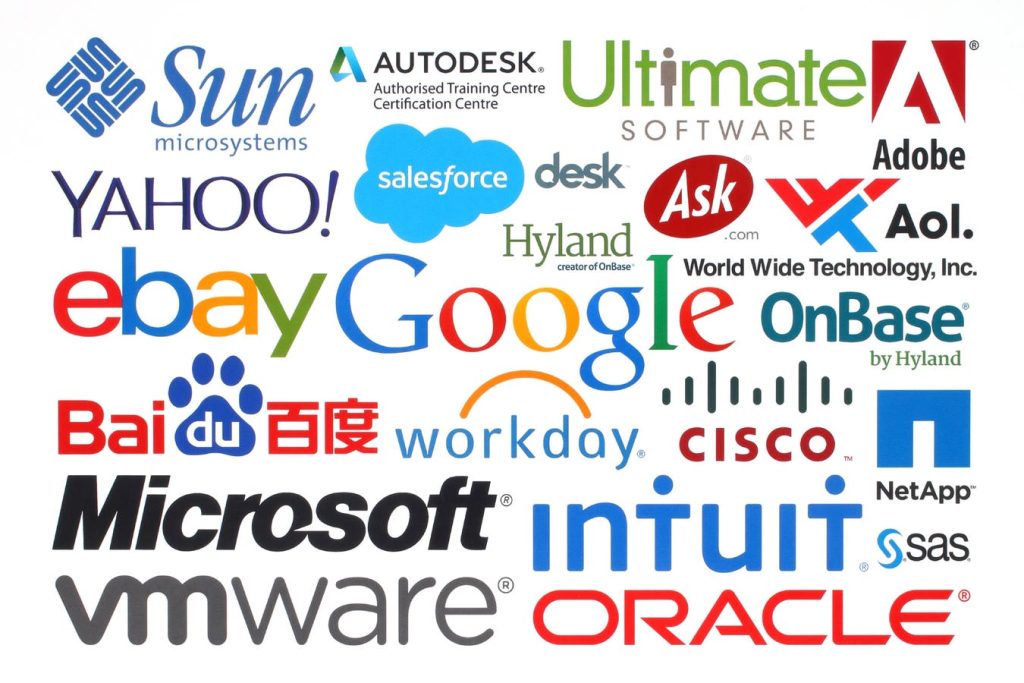
As mentioned before, our personal information is now in the hands of big companies and platforms, and we are no longer in control of the power to be left alone. The boundaries of our privacy are gradually being altered. In the internet environment, privacy issues acquire a new significance through the volume of information that can provided, the trade-offs between privacy rights and access to free online services, and the scope for commercial interests and government agencies to use big data for personal profiling in ways to which the user has not given informed consent. (Flew, 2021) The focus on privacy seems to have shifted from is my privacy well protected to is my privacy is being sold.
Because we all know that in such a time of great change, we can’t get off the Internet. A condition of using the Internet is that our personal privacy will be recorded. And once recorded, then there is a risk of exposure. We know the capacity of content aggregators such as search engines and social media platforms to sell our personal information and data to third parties. But it is inevitable if you want to survive in the online society.
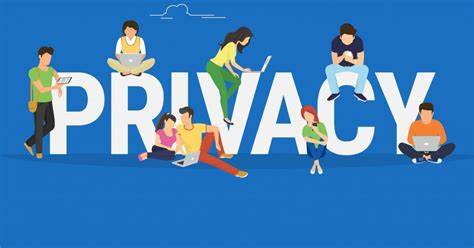
We are awake and cognizant, yet unable to resist such changes. That’s why ‘although people say they care very much about privacy, they behave as if they did not’. (Flew, 2021) Such an online environment affects each and every one of us. In this context, minors become the best mirror of today’s online society, and some of their behaviours can clearly reflect the problems of our online environment.
There’s no doubt that we have freedom of speech, but in today’s world of unparalleled online data transparency, we have to be careful how we use our rights if we still want to allow the boundaries of our privacy to expand a little bit further out. But when unmitigated disasters befall us such as doxing, we must take up the weapons of the law to protect ourselves. When encountering online platforms that require the submission of personal information, it is best for us to be patient and to open their terms of service to know what is involved in the personal privacy information.
References
Flew, T. (2021). Regulating Platforms. Polity Press.
Goggin, G., Vromen, A., Weatherall, K., Martin, F., Webb, A., Sunman, L., & Bailo, F. (2017). Digital rights in australia. Department of Media and Communications, University of Sydney.https://ses.library.usyd.edu.au/handle/2123/17587
Nguyen, S. (2023, February 7). What is doxxing and what can you do if you are doxxed? CNN.https://edition.cnn.com/2023/02/07/world/what-is-doxxing-explainer-as-equals-intl-cmd/index.html
Suzor, N. P. (2019). Lawless : The secret rules that govern our digital lives. Cambridge University Press.https://www.cambridge.org/core/books/lawless/8504E4EC8A74E539D701A04D3EE8D8DE
Tumber, H., & Silvio Waisbord. (2017). The Routledge Companion to Media and Human Rights. Routledge. https://www.taylorfrancis.com/books/edit/10.4324/9781315619835/routledge-companion-media-human-rights-howard-tumber-silvio-waisbord

Be the first to comment